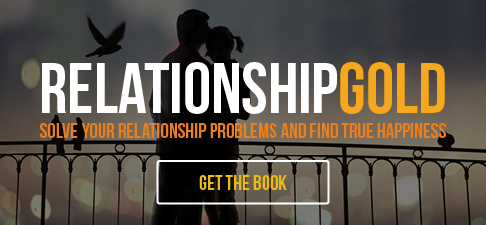ADD Relationships
How to Stay Focused for Success
ADD relationships are often fraught with problems, due to one or both partner's Attention Deficit Disorder issues. People who have ADD or ADHD often feel embarrassed or ashamed because of their symptoms, and difficulties they face in every aspect of their lives. Conducting a healthy relationship, for example, is hard work for someone with ADHD. If you have ADHD symptoms, It can be hard to listen or to give your partner your undivided attention, and difficult to remember what your relationship partner tells you. Staying calm and keeping your focus in a serious discussion can be a challenge.
The problem with many ADDers is not that they can't focus (they may have great selective focus), but they tend not to stay focused, especially on something they don't find interesting or important. Let's take a look at a few of my favorite techniques for helping young people and adults with ADHD stay attentive, communicate better and conduct healthy relationships.
 Make Time to Communicate . . . Your Relationship is Worth It
Make Time to Communicate . . . Your Relationship is Worth ItHow to Manage ADHD Symptoms
ADD can cause major communication problems. And it can make the non-ADD partner wonder if his/her spouse really cares. Focusing and inattention problems can sabotage the best marriages and relationships. I'll give you a few tried-and-true strategies for keeping your focus throughout the day, so you can take steps to improve your ADD relationships.
- Find encouragement. A little encouragement and inspiration can go a long way toward helping your ADDer to pay attention. They tend to feel incompetent and need all the reassurance, understanding and support they can get. So, find a support system and ask the people you love to cheer you on. Ask family members to help you stay on schedule, organize your projects and get reminders when you need them.
- Avoid being critical of yourself. You aren't flawed. There's nothing wrong with you. You simply have ADD. Your brain works a little differently. Look on the bright side. Who is perfect anyway? By preparing yourself well, you'll be able to manage your symptoms effectively.
- Be patient with yourself. Impatience only adds stress to life. It sets up demands and fear. Who wants to feel pressured all the time? Relax and float downstream. It's okay to give yourself a break.
- Take notes. If you're going to a class, meeting or workshop, take your notebook or computer and write down the key concepts your instructor gives you. Taking notes will make it easier to pay attention. It gives you something to do and keeps you constructively occupied... and helps you to better recall the information later. Develop a simple way to keep your notes organized, too.
- Choose a seat wisely. You'll do better and stay engaged as a learner if you select the right seat. Avoid seats by a door, a busy hallway, the window, or other distractions. Sitting up front is a good idea, facing the teacher.
- Interacting with the teacher will help you stay focused. Asking questions and making comments will stimulate your brain and keep you on task. It is so much harder to be a passive participant ... you'll either go to sleep, daydream or end up thinking about the wrong things.
- Move around whenever you can. Take a two-minute walk down the hall if you find your mind losing focus. Do some deep breathing and recharge your batteries. Go outside and get some fresh air, stretch a little bit. You'll feel a surge of energy to help you go back into the meeting and be at your best. Remember to get permission to do this first.
- Spouses should set aside time to talk weekly, in a place that is free from distraction, so they can deal with everything that needs discussing.
- Avoid getting discouraged if your ADD-spouse doesn't pick up on your cues and repeat what you need to say as often as necessary to ensure they receive the message.
- Be prepared to remind your ADD-partner of important dates and obligations, but remind them gently. Be persistent and assertive.
Also, if you are taking medication, take it regularly. It will give you that extra boost.
If you want your ADD relationship to work, you'll need to become a skilled relationship partner. Not only will you have to learn how to cope with the effects of ADD in your relationship, but you'll have to master basic and advanced relationship skills. I recommend an eBook I wrote for my psychotherapy and coaching clients on solving relationship problems and learning how to conduct successful relationships to serve as your practical guide. It's called Relationship Gold, and it's all about relationship alchemy . . . or the art of turning relationship problems into relationship gold.
You'll discover how to turn the problems into hidden gifts or opportunities in disguise, and using them to build the best possible relationships you can have. Take the extra work out of relationship rescue and build a cutting-edge relationship that will withstand the test of time. Learn how to affair-proof your marriage and make difficult relationships thrive.
ADD Relationships and Communication
ADD relationships face hurdles that other relationships may not face. ADD has a big impact on relationships. ADD affects communication, problem solving and the handling of conflict. Somehow those with ADD never seem to say what's really on their minds, or may not pay attention to their spouses when they the spouses need to be heard. Many neglect the emotional aspects of their relationships.
Couples with one or both ADD partners should work hard to lessen the side effects of ADD and help their relationship to go smoothly. It takes working together and planning together to reap success. So think about ADD and relationships. Patience and compassion, careful communication, a sense of humor and the willingness to laugh at your own mistakes can help.
Remember that ADD relationships struggle with communication, and strive to communicate rather than allowing yourself to become discouraged and avoiding communication!
Relationship Gold, our handy Relationship Guide, can help you to deal with stubborn relationship problems . . .
Untreated ADHD can lead to very real frustration, disappointment and under-achievement. Don't let your ADHD symptoms derail your plans for happiness and success. Harness the assistance from your family, friends and colleagues, instead of going it alone. And don't forget to reach out for professional help. It can make a big difference in your coping skills and prevent you from under-achieving.
More Articles on ADHD
by Richard Hamon, Master Therapist and Holistic Life Coach
Get help for your ADHD relationships.
Find out more about ADHD and learn how to cope.
ADHD disorders are common in today's world and pose many risks and problems.
ADD Relationships: Key Points to Remember
Living well with ADHD requires staying on your toes and creating the right environment for success. You'll find it easier to succeed and stay focused if you avoid the pitfalls of trying to deal with your disorder alone. Just get some encouragement, avoid criticism, and be patient, and it'll be easier to tame your wandering mind. In class, remember to take notes, choose a seat wisely and do little things to keep yourself alert and on the right track. Find ways to neutralize the ill-affects of ADD relationships. You'll enjoy your life more and you'll be more successful in all you do by staying attentive.
Good luck! Just let me know if you need more help. I'll be glad to offer assistance.




